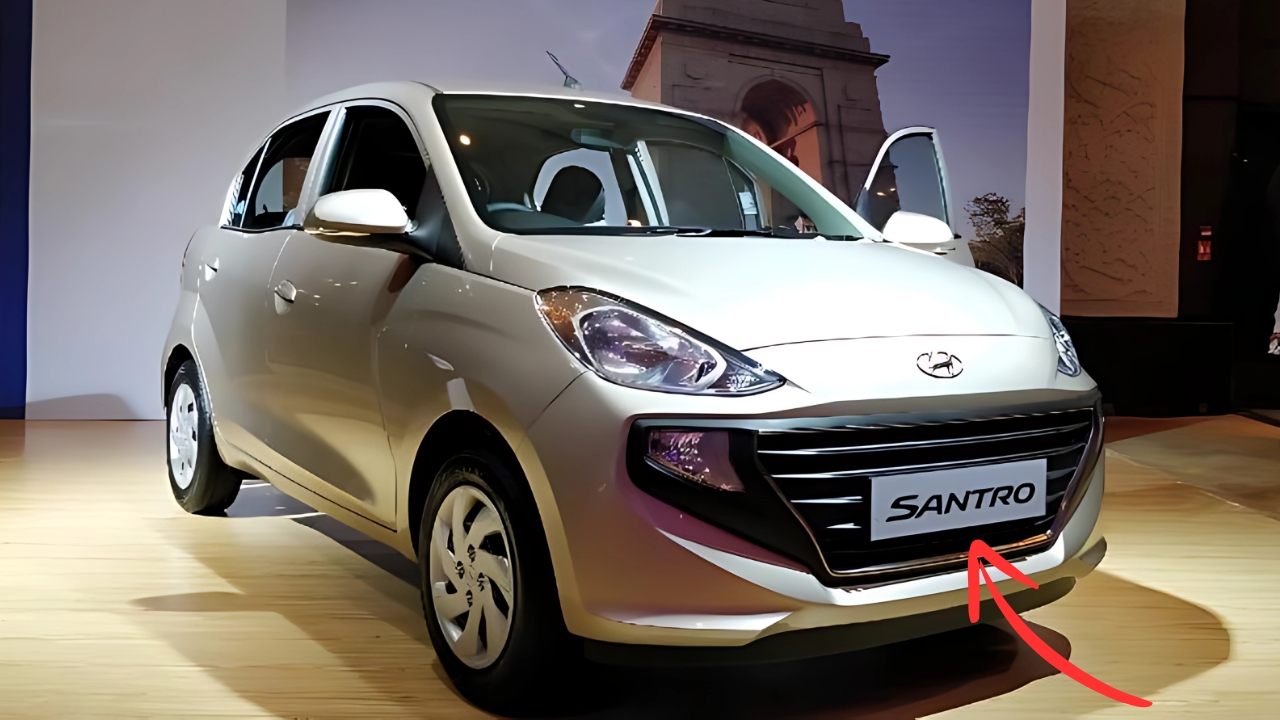Hyundai Santro: The Hyundai Santro stands as one of the most significant vehicles in India’s automotive history, having played a pivotal role in both establishing Hyundai’s presence in the subcontinent and transforming the expectations of entry-level car buyers.
This compact hatchback combined thoughtful design, practical features, and reliable engineering at an accessible price point, creating a compelling value proposition that resonated deeply with Indian consumers.
Hyundai Santro: Historical Significance
Introduced in 1998, the Santro arrived at a crucial juncture in India’s automotive evolution. The market was dominated by a handful of established players, and consumer expectations were limited by the available options.
Hyundai’s decision to enter with a modern, feature-rich small car rather than a basic transportation appliance demonstrated their understanding of evolving consumer aspirations and helped establish the brand as a significant player in what would become one of the world’s largest automotive markets.
The model’s importance extended beyond mere commercial success, fundamentally altering perceptions about what entry-level car buyers could expect in terms of design, features, and quality.
By raising these expectations, the Santro played a crucial role in accelerating the overall improvement of India’s automotive landscape.
Design Philosophy
The Santro’s exterior design embraced a distinctive tall-boy architecture that prioritized interior space:
-
Elevated roof line maximizing headroom for all occupants
-
Large greenhouse providing excellent visibility
-
Compact exterior dimensions facilitating urban maneuverability
-
Multi-reflector headlamps enhancing both visibility and appearance
-
Body-colored bumpers and mirrors (on higher variants) adding visual cohesion
-
Distinctive grille design establishing brand identity
Inside, the cabin leveraged the tall-boy layout to create surprising spaciousness:
-
Upright seating position enhancing comfort and entry/exit
-
Multi-adjustable front seats accommodating diverse physiques
-
Generous headroom even for taller passengers
-
Thoughtfully positioned storage compartments throughout
-
Clear, legible instrumentation prioritizing essential information
-
Quality materials exceeding segment expectations
These design elements collectively created a vehicle that felt substantially more spacious and premium than its exterior dimensions and price point might suggest—a characteristic that contributed significantly to its popular appeal.
Technical Specifications
The Santro underwent several evolutionary updates during its production:
| Specification | Original Santro | Santro Xing | Santro New |
|---|---|---|---|
| Engine | 1.0L Epsilon | 1.1L Epsilon | 1.1L Epsilon |
| Maximum Power | 55 PS @ 5500 rpm | 63 PS @ 5500 rpm | 69 PS @ 5500 rpm |
| Maximum Torque | 84 Nm @ 3500 rpm | 96 Nm @ 3000 rpm | 99 Nm @ 4500 rpm |
| Transmission | 5-speed manual | 5-speed manual/4-speed auto | 5-speed manual/AMT |
| Fuel Efficiency | 14.7 km/l | 16.3 km/l | 20.3 km/l |
| Kerb Weight | 825 kg | 850 kg | 820 kg |
| Turning Radius | 4.4 meters | 4.4 meters | 4.7 meters |
The multi-point fuel injection system represented advanced technology for its segment at launch, delivering superior efficiency and emissions performance compared to carburetor-equipped competitors.
The later introduction of an automatic transmission option further demonstrated Hyundai’s commitment to bringing premium features to accessible price points.
Feature Innovation
The Santro introduced several features previously uncommon in its segment:
-
Power steering enhancing maneuverability in urban environments
-
Front power windows adding convenience at accessible price points
-
Integrated audio system with quality speakers
-
Air conditioning with multi-speed blower
-
Internal fuel filler release enhancing security
-
Rear window defogger improving visibility in adverse conditions
These features represented meaningful quality-of-life improvements rather than mere specification sheet enhancements, addressing practical needs that resonated with value-conscious buyers.
Market Impact
The Santro established several important precedents in the Indian automotive landscape:
-
Demonstrated viability of feature-rich small cars at accessible price points
-
Established Hyundai as a significant competitor to established manufacturers
-
Helped normalize power steering in entry-level segments
-
Created consumer expectations for interior space efficiency
-
Proved automatic transmission viability in affordable segments
-
Influenced subsequent small car development across manufacturers
These contributions extended beyond commercial success to genuinely influence India’s automotive ecosystem, particularly regarding feature expectations at entry-level price points.
Legacy and Evolution
While the original Santro eventually ceased production, its influence continued:
-
Santro Xing updating the concept for contemporary requirements
-
Design philosophies influencing subsequent Hyundai small cars
-
Engineering lessons applied to newer platforms
-
Brand equity contributing to Hyundai’s growth in India
-
Consumer trust established through ownership experience
- Reintroduction of the nameplate in 2018 acknowledging its significance
The model’s lasting legacy is evident in Hyundai’s continued strength in India’s small car segments—a foundation built substantially on the Santro’s initial success and the customer relationships it helped establish.
Hyundai Santro:
The Hyundai Santro exemplifies how thoughtful product development focused on genuine consumer needs can create enduring automotive success stories.
By delivering meaningful features, practical design, and reliable engineering at accessible price points, Hyundai created a vehicle that genuinely improved mobility for millions across diverse economic circumstances.
Its influence extends beyond sales figures to include the elevation of consumer expectations and the establishment of Hyundai as a major player in one of the world’s most important automotive markets—a legacy that continues shaping India’s automotive landscape today.
